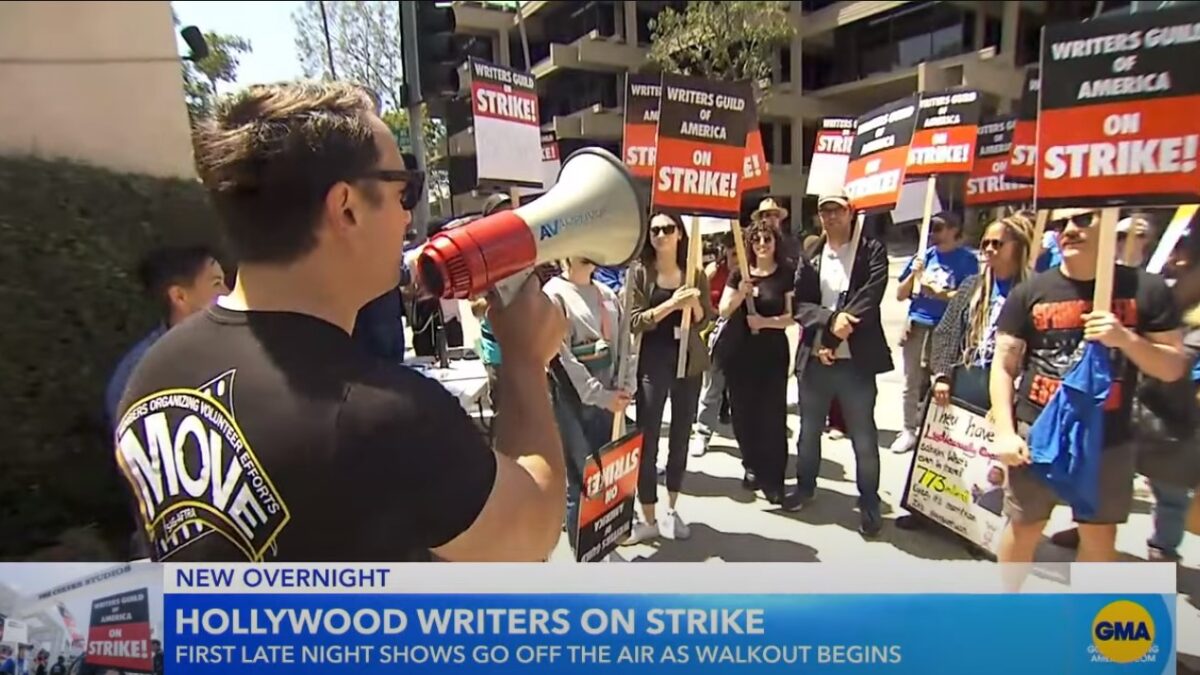
Movie mogul Harvey Weinstein’s saga continued last week with the Wall Street Journal reporting Friday that the disgraced sibling has sued The Weinstein Company—the multimedia company Harvey and his brother Bob launched in 2005 and where Harvey worked until his abrupt firing following an avalanche of claims of sexual misconduct. In his lawsuit, filed in the Delaware Chancery Court, Harvey demanded “access to documents he claims could help him with his potential defense against civil and criminal claims as well as a potential claim of wrongful termination against the studio.”
Harvey’s floating of a legal claim for “wrongful termination” against Weinstein Company seemingly vindicates TMZ’s reporting from a couple weeks back, when the gossip site chinwagged: “Harvey Weinstein Contract with TWC Allowed for Sexual Harassment.”
According to TMZ, it was “privy to Weinstein’s 2015 employment contract,” which provided that if Weinstein violated “the company’s Code of Conduct,” he must reimburse Weinstein Company for damages. Additionally, TMZ reported, the contract required Harvey to “pay the company liquidated damages of $250,000 for the first such instance, $500,000 for the second such instance, $750,000 for the third such instance, and $1,000,000 for each additional instance.”
Can Weinstein Sue His Own Company for Firing Him?
TMZ added that “[t]he contract says as long as Weinstein pays, it constitutes a ‘cure’ for the misconduct and no further action can be taken. Translation—Weinstein could be sued over and over and as long as he wrote a check, he keeps his job.” The contract terms, per TMZ, apparently also provided that the board could fire Harvey if he’s indicted or convicted of a crime, or committed a “material fraud,” but that “before he can be fired he has a right to mediation and if that doesn’t work, he’s entitled to arbitration.”
Because Weinstein Company summarily fired Harvey, several outlets hypothesized, based on the TMZ story, that Harvey has a legal claim against Weinstein Company for firing him. For instance, PJ Media’s Debra Heine, wrote “[t]herefore, it appears, Weinstein may have been wrongfully terminated by [Weinstein Company].”
This conclusion mirrored that of Harvey Levin, the executive producer of TMZ, who appeared on Fox News’ “The Story with Martha MacCallum,” telling her “So then the issue is, how were they able to fire him? Because they just summarily did it. They didn’t send him any kind of notice as to why, and the contract says he has the right to go into mediation and arbitration. So it looks to me, based on what I’ve seen, that he has a real case against the company for being wrongfully terminated.”
HotAir’s Allahpundit offered a similar verdict, writing: “If TMZ is right, the only ways Weinstein could be rightly fired under the agreement were if he was indicted or convicted of a crime (stay tuned!) or if he committed a ‘material fraud’ against the company. In theory, him telling the company that he was paying hush money over *consensual* affairs instead of criminal acts would amount to fraud, which would justify him being fired a few days ago. But hold on: The agreement also says he was entitled to mediation and eventually arbitration with the company before he was canned, which wasn’t granted to him. That is to say, Harvey Weinstein, currently accused by dozens of women of acts ranging from extreme skeeviness to aggravated felony, may have been … improperly terminated under his contract.”
From his recent court filing, Harvey also seems to think he has a valid claim against his former company. But thankfully they’re all wrong.
You Can’t Sign a Contract Protecting Illegal Actions
Contracts are merely enforceable promises. State law defines the requirements for a contract to be enforceable. Generally, parties need an agreement and consideration—a benefit for each party. Courts, though, won’t enforce an agreement that is illegal or contrary to public policy. And sexual harassment is contrary to public policy.
As the Supreme Court of California put it: “The public policy against sex discrimination and sexual harassment in employment, moreover, is plainly one that ‘inures to the benefit of the public at large rather than to a particular employer or employee.’ No extensive discussion is needed to establish the fundamental public interest in a workplace free from the pernicious influence of sexism. So long as it exists, we are all demeaned.”
Now, an employer may contractually provide for progressive discipline, as opposed to the outright firing of an employee involved in sexual harassment. And courts will generally enforce those types of provisions, but not when the sexual misconduct is as extreme as alleged in this case. Thus, for instance, one court held that an employer could not even tell the jury that the terms of its collective bargaining agreement barred it from firing an employee who had groped female co-workers and masturbated in front of them.
In suing Weinstein Company for breach of contract, he’s likely to be laughed out of court, and arbitration would likely lead to the same results. So the contract won’t keep Harvey’s career afloat. But it will sink Weinstein Company. Here’s why.
The Weinstein Company Is Liable for Weinstein’s Conduct
While many of Harvey’s victims apparently already settled claims against him and Weinstein Company, given the apparent prevalence of his sexual misconduct, many more likely exist. And while some claims may be so old that they are time-barred, more recent victims have an array of legal theories under which to sue both Harvey and Weinstein Company.
Claims against Harvey could include: Assault and battery (civil), intentional infliction of emotional distress, and sex discrimination (under both state and federal law). As Harvey’s employer, Weinstein Company will face liability for Harvey’s conduct based on the principle of respondeat superior—which holds an employer liable for torts committed by an employee in the scope of employment—and negligence.
A typical employer might avoid liability for an employee’s sexual misconduct by claiming it occurred outside the scope of employment and was not foreseeable to the business. But the contract proves Weinstein Company clearly knew Harvey had engaged in sexual misconduct. While Weinstein Company’s talking points frame these settlements as payouts prompted by consensual affairs, consensual sex can still be unwelcome sexual harassment, such as in the case of quid pro quo “sex” for “an acting role.”
The contract exposes Weinstein Company’s complicity: Weinstein Company promised not to fire Weinstein for sexual misconduct so long as he reimbursed the business for the cost to settle the claims. In other words, Weinstein Company’s board members “did not fire Harvey Weinstein because they found out he was a sexual predator. They fired him because we found out!”
But even more appalling, as Allahpundit pointed out, is this further fact bared by the purported contract terms: Because the contract required Harvey to pay Weinstein Company an escalating fine for each claim it had to settle, “[t]hese sick bastards actually profited from [Harvey] paying hush money to his victims.” What do you think a jury will do when it hears of these facts? It will crush Weinstein Company with punitive damages, as it should.
While many situations prompt the often-expressed sentiment, “it’s a pity they can’t both lose,” this case isn’t one of them. They both can lose. And big. Unfortunately, that’s little solace for their victims.









